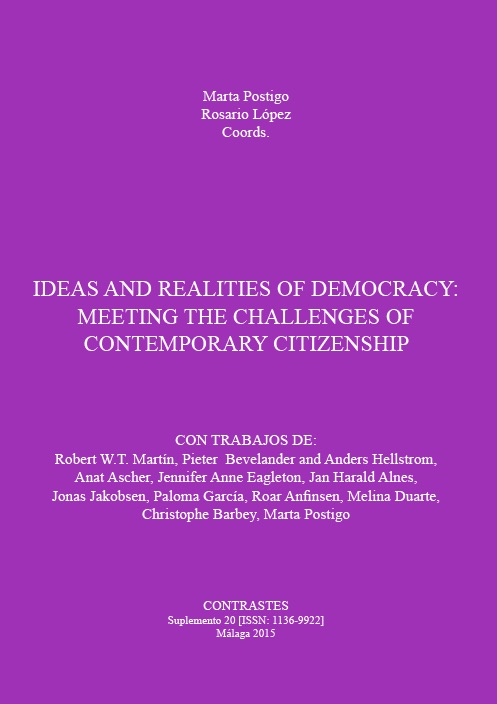Nature and the Political Ideal of Aristotle
DOI:
https://doi.org/10.24310/Contrastescontrastes.v20i3.2421Keywords:
ARISTÓTELES, DOMINACIÓN, EL MEJOR ESTADO, NATURALEZA, SUBORDINACIÓNAbstract
En este artículo defiendo que existe una «teleogología política» en Aristóteles que está estrechamente relacionada con su teleología natural. A través de la teleología natural el filósofo justifica un orden político de dominación y subyugacion, en el que la mayor parte de la población queda excluida de la ciudadanía debido a la falta de virtud. Las vidas de los trabajadores manuals, ya sean mujeres, esclavos o miembros masculinos de la población libres, carecen de validez de acuerdo a los criterios más elevados que Aristóteles considera necesarios para la ciudadanía. El objetivo de la población trabajadora es servir a formas más elevadas de existencia, a la vida de la clase dirigente.
Downloads
Metrics
Publication Facts
Reviewer profiles N/A
Author statements
Indexed in
-
—
- Academic society
- N/A
- Publisher
- Universidad de Málaga
Downloads
Published
How to Cite
Issue
Section
License
This journal provides immediate free access to its content under the principle of making research freely available to the public. All content published in Contrastes. Revista Internacional de Filosofía, are subject to the Creative Commons Attribution-NonCommercial-ShareAlike 4.0 license whose full text can be found at <http://creativecommons.org/licenses/by-nc-sa/4.0>
It is the responsibility of the authors to obtain the necessary permissions of the images that are subject to copyright.
Authors whose contributions are accepted for publication in this journal will retain the non-exclusive right to use their contributions for academic, research and educational purposes, including self-archiving or repository in open access repositories of any kind.
The electronic edition of this magazine is edited by the Editorial Service of the University of Malaga (Uma Editorial), being necessary to cite the origin in any partial or total reproduction.










5.png)
